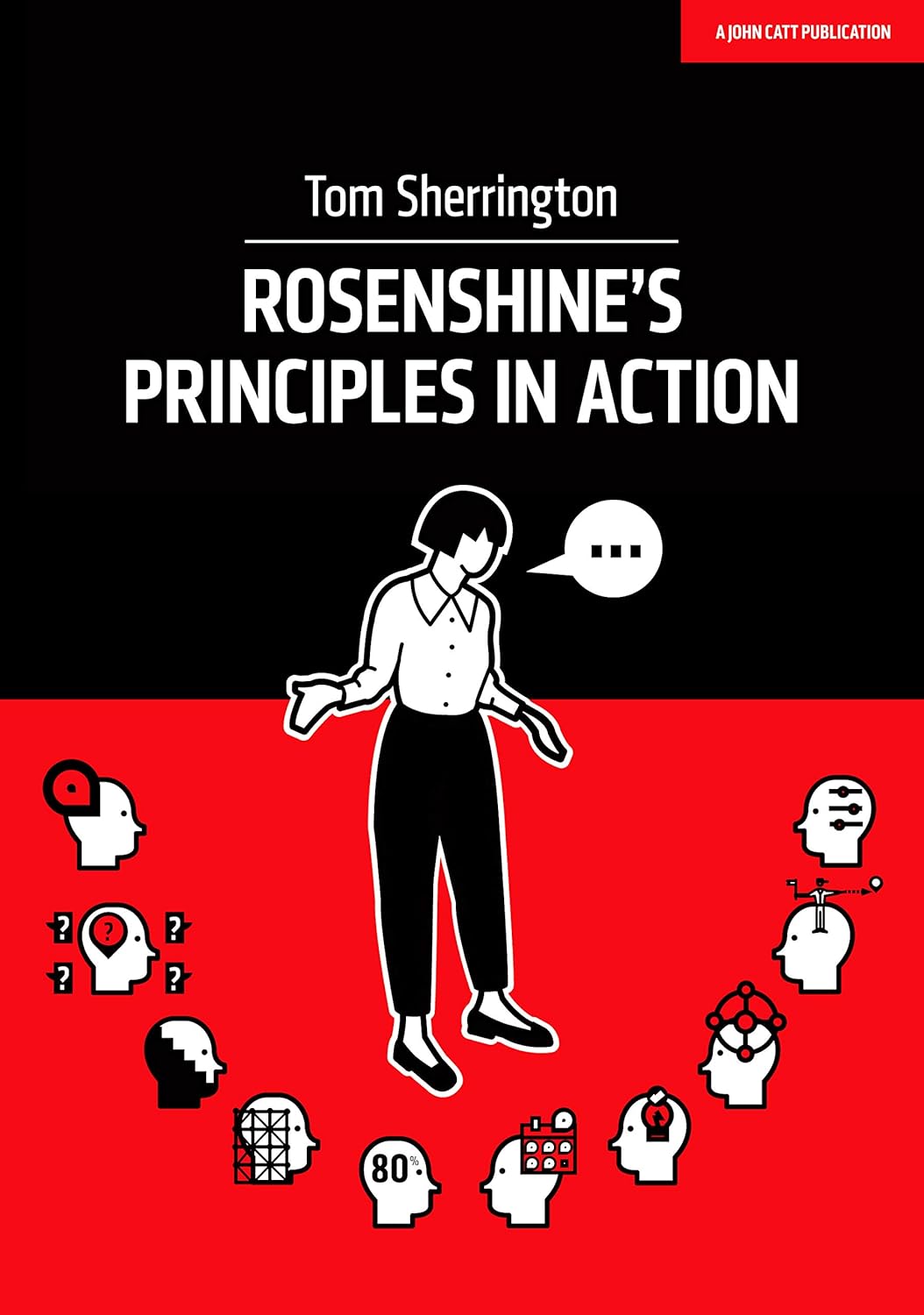About this deal
Rosenshine suggests that a success rate of around 70% is too low. In the only issue he raises with Rosenshine’s principles, Sherrington suggests that we shouldn’t worry too much about the precision here; we might find that a lower success rate is in fact optimum. The idea behind scaffolding is that ‘cognitive supports’ are provided and are gradually withdrawn as a student gains competency. In this way, scaffolding can help to develop a student’s expertise and mastery in a subject. Rosenshine writes that thinking aloud is an example of ‘effective cognitive support’ (p. 15). Questioning focuses on a crucial area of teaching and learning which is otherwise largely absent from Rosenshine’s principles: student engagement. As Tom Sherrington writes in his book Rosenshine’s Principles in Action, [2] Agree a focus on small number of the principles – perhaps one of the four strands I explore – with individuals committing to develop and practise them in a specific series of lessons.
Teachers ask questions and … select students to respond based on their knowledge of the class, avoiding the pitfalls of hands-up or calling out.’ Here we see an example of Rosenshine’s use of research in cognitive science to support the importance of a principle: one of the reasons it’s important to learn something to the level where it becomes automatic is that the absence of effort required to recall what we’ve learned frees up space in our working memory, which we can then devote to other tasks – e.g., learning something new. In the classroom This strategy aims to give those students who don’t know the answer or get an answer incorrect opportunities to learn from others in the class and to practise. It also avoids fostering the defensive habit of ‘I don’t know’. First published in 2010 by the International Academy of Education; republished in 2012 as‘Principles of Instruction: Research-based Strategies That All Teachers Should Know’, in American Educator. References are to the latter.Rosenshine writes that more effective teachers incorporate modelling and scaffolding into the process of offering explanations. By so doing, Rosenshine suggests that master teachers provide well-structured support for students as they build their schemata for new concepts (Sherrington, p. 15). ‘Schemata’ Rosenshine suggests that more effective teachers are ‘able to narrate the decisions and choices they make’ – for example, where to begin with a maths problem or how to start an essay. Sherrington writes that thinking aloud by the teacher is important for developing students’ ‘capacity for metacognition and self-regulation by modelling their own thought processes’ (Sherrington, p. 20). The process of a student gradually gaining independence through modelling and scaffolding as their mastery over a skill or task increases is sometimes called ‘cognitive apprenticeship’. This is the process where a ‘master’ of a skill – i.e., someone who has achieved a level of mastery – teaches that skill to a student (‘apprentice’). The master also supports the apprentice as they become independent at proficiently completing the task or engaging in the skill in question (Rosenshine, p. 18).
Stages of practice: Sherrington’s fourth strand, involving Rosenshine’s fifth, seventh and ninth principlesRosenshine writes that less effective teachers asked fewer questions and almost no ‘process questions’ – questions about the process of learning, such as how students worked something out (contrast, for example, with factual questions) ( ibid.). Rosenshine and Sherrington recommend that teachers provide many worked examples and then leave students to finish problems by themselves. The extent to which students complete tasks by themselves depends how far along they are in the process of mastery over the task or skill in question (Sherrington, p. 21). The extent to which students complete problems by themselves is expressed by Rosenshine in terms of the number of steps in a learning process students are expected to complete by themselves. Sherrington calls his second strand ‘questioning’ and writes that this strand concerns the following instructional procedures:
 Great Deal
Great Deal 